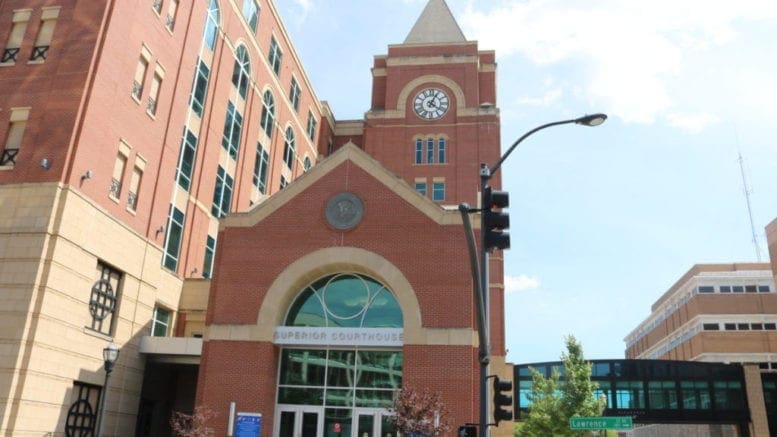The Judicial Emergency declared by Chief Judge A. Gregory Poole of the Cobb Judicial Circuit on August 7, 2024, and extended on August 28, 2024, expired on October 6, 2024, at 9:05 AM.
All legal deadlines, including statutes of limitations and filing requirements, have resumed.
The Superior Court Clerk’s Office has resolved a document backlog in the new case management system, allowing the judge to feel comfortable ending the emergency, despite remaining concerns.
The emergency did not affect other courts in Cobb County, such as the State, Juvenile, Magistrate, or Probate Courts.
The Chief Judge expressed gratitude to the Clerk’s Office, attorneys, litigants, and other judicial entities for their professionalism and cooperation.
Poole requested that the announcement of the expiration be made widely known to all affected parties and the public.
Background
The following is the text of the original public information release from the court at the time the judicial emergency was declared in early August:
Chief Judge A. Gregory Poole of the Cobb Judicial Circuit today took the extraordinary step of declaring a Judicial Emergency within the Superior Court of Cobb County due to serious issues that have arisen in the Superior Court Clerk’s Office within that circuit.
Judicial Emergencies are permitted under Georgia law when the Chief Judge determines there is an emergency so serious that the judicial system cannot function normally and that the public, in many instances, will not be able to use the judicial system or meet deadlines imposed on them by a court.
The Superior Court Clerk’s Office has been plagued by many serious issues before and since it undertook a software conversion in late June 2024. Though not an exhaustive list, the issues most impactful to the administration of justice are listed in the Notice. They include the inability of court staff and litigants to retrieve information about cases, inaccurate scheduling and notices, and inaccurate or incomplete documents.
The Chief Judge, after consulting with and with the full support of the other 10 Superior Court judges in Cobb, concluded that these issues are so serious as to impact or have the potential to impact due process and other constitutional rights of litigants. Given the issues and the severe nature of their impact, the Chief Judge concluded he has a duty to protect the litigants, attorneys, and public from any adverse consequences of the present situation.
Under State law, the Judicial Emergency may suspend deadlines and otherwise grant relief for an initial period of 30 days. During this time, the Chief Judge hopes that the situation in the Clerk’s Office will improve such that another Emergency Order will be unnecessary. During this emergency period, the Court trusts that all litigants and their attorneys will continue to be understanding and professional with one another in dealing with any issues arising from the emergency.
The Chief Judge directs that this notice and enclosed Order be published, posted, transmitted, or otherwise announced such that all the parties affected, their counsel, and the public are made aware of the Judicial Emergency, as required by state law.
What is Cobb County Superior Court?
In Georgia, the Superior Court is one of three trial courts found in each judicial circuit. The other two trial courts are State Courts and Probate Courts.
If you watch TV or movie courtroom dramas you’ll be familiar with the most high-profile role of the court. A Superior Court in Georgia would be the court where a murder trial would be conducted.
So the Superior Court conducts felony trials.
But it also handles a number of other types of cases.
The Georgia Superior Courts website describes the varied functions as follows:
The Superior Courts of Georgia is a court of general jurisdiction handling both civil and criminal law actions. Superior Court Judges preside over cases involving misdemeanors, contract disputes, premises liability, and various other actions. In addition, the Superior Court has exclusive equity jurisdiction over all cases of divorce, title to land, and felonies involving jury trials, including death penalty cases.
How are Superior Court judges chosen?
Superior Court judges are elected for four-year terms in nonpartisan elections. If a judge resigns or retires, the governor will appoint a replacement to serve out the judge’s unexpired term.
The requirements to run for a Superior Court seat are that the candidate be at least thirty years old, has been a Georgia citizen for at least three years, and the candidate has practiced law for at least seven years.
How do I learn about Superior Court judges before elections?
Judicial races are among the most difficult for the public to research, but the internet has made it easier.
For Cobb County judicial elections there are a number of media that cover the courts and candidates, including here at the Cobb County Courier, the Marietta Daily Journal, the Atlanta Journal Constitution, and East Cobb News.
For biographies of judicial candidates, you can also visit the campaign web pages of the candidates. Those biographies are of course, written to put the candidate in the best light, but it’s a good starting point for determining the candidate’s educational and employment background.
To get a list of the candidates, visit the Georgia Secretary of State page for qualified candidate information at https://sos.ga.gov/qualifying-candidate-information
Superior Court is considered a state office, so you would select “State” on the Office Type pulldown menu, the General Primary/Special Election under the Election menu, and “Non Partisan” under the Party menu. Then under Offices scroll down the pulldown menu until you find the Superior Court race you are looking for.
